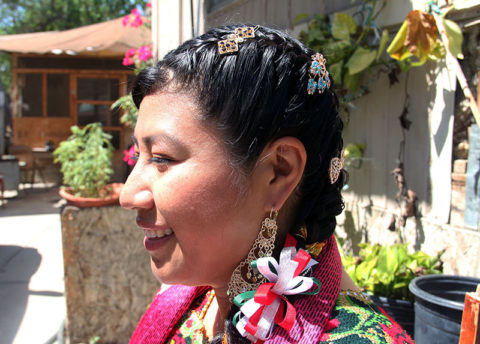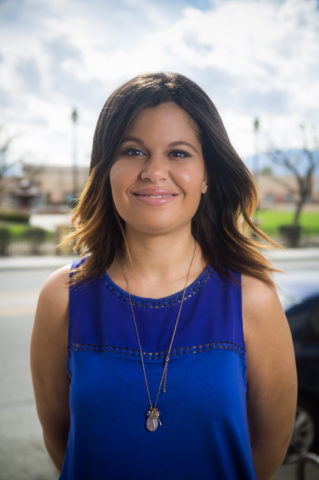
By Paulina Rojas
Editor’s note: Alma Ochoa is a Purépecha musician based out of the Eastern Coachella Valley. The Purépecha are a group of indigenous people originally from the state of Michoacan in Mexico. Their presence in the Eastern Coachella Valley dates back to around the 1970s, when few Purépecha spoke Spanish. Over the years the community struggled with both linguistic and cultural isolation. Ochoa, who sings in her native language, is one of only a few female Purépecha singers. She recently performed at The Hue Festival in Mecca, Calif. Coachella Uninc. program associate and reporter, Paulina Rojas sat down with Ochoa to find out how she helps preserve Purépecha culture.
Q: How long have you been producing Purépecha music?
A: About three or four years ago, I got inspired to start recording my own music. About two years ago, I recorded my first music video and a few months ago I released it on YouTube.
Q: What was the initial feedback like?
A: I wasn’t expecting so many people to like it. I was surprised, but I am happy that so many people are enjoying it.
Q: What inspired you sing in Purépecha instead of Spanish or English?
A: Most of the people that sing pirekuas (traditional music from Michoacan) are men and I wanted to change that … so that women might feel encouraged to make this music as well. With my music I hope to inspire young women to start doing the same. I also want preserve my culture in some way. Little by little we are losing parts of it due to the fact that it is being mixed with Spanish. I want to keep our culture alive so future generations can have the knowledge of what Purépecha culture is.

Alma Ochoa shows off traditional Purépecha braids and style. (Image: Paulina Rojas/ Coachella Unincorporated)
Q: Did you have to learn Purépecha or have you always spoken it?
A: I was born in Michoacan and Purépecha was my first language. Then my family and I moved to the United States when I was nine years old. After moving here I learned Spanish and a few years later I learned English.
Q: What are some of the obstacles you face as a Purépecha woman making music?
A: Well unfortunately there is a lot of racism against indigenous people. We experience it here (in the Eastern Coachella Valley) as well. I have heard many stories of young Purépechas being bullied in school because of the color of their skin. Even when you see main characters in novelas (soap operas) the main characters are always light skinned while the the roles of maids, gardeners and nannies are always played by darker skinned people. With my music I hope to help darker-skinned people take pride in who they are.
About the Author:
 Paulina Rojas is a native New Yorker, Paulina has spent the past two years reporting on the Eastern Coachella Valley. She joined Coachella Unincorporated in 2016. While it is different from the concrete jungle of Manhattan, she feels right at home in Coachella. In 2014 Paulinagraduated with a journalism degree from The University of Houston and is a member of The National Association of Hispanic Journalists. View her author page here.
Paulina Rojas is a native New Yorker, Paulina has spent the past two years reporting on the Eastern Coachella Valley. She joined Coachella Unincorporated in 2016. While it is different from the concrete jungle of Manhattan, she feels right at home in Coachella. In 2014 Paulinagraduated with a journalism degree from The University of Houston and is a member of The National Association of Hispanic Journalists. View her author page here.